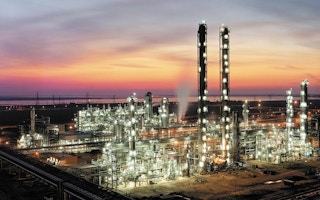A new ministerial regulation published this week requiring greater use of biodiesel has received mixed reviews from analysts who claim the ruling will not reduce fuel imports in the short term.
Pri Agung Rakhmanto, the executive director of the Jakarta-based energy think-tank ReforMiner Institute, said on Thursday that it would take some time to increase the use of biodiesel. “It is impossible to meet all the requirements needed to realize the plan. Furthermore, the new rule will not significantly reduce diesel fuel imports,” he said.
With the regulation, the government is hoping to reduce diesel fuel imports by increasing the use of biodiesel from the current 2.5 percent to at least 10 percent, while also mandating fuel-blending.
The regulation seeks to support the economic stimulus package announced last week to spur economic growth and stabilize the weakening rupiah.
According to data from the Energy and Mineral Resources Ministry, the government is seeking to cut at least 1.3 million kiloliters of diesel fuel imports between September and December this year.
By August next year, a year after the introduction of the regulation, the government expects to have cut diesel fuel imports by around 5.6 million kiloliters, worth US$4 billion. In the near term, the government expects to reduce the country’s diesel fuel imports by at least 100,000 barrels per day (bpd) for the rest of the year.
However, according to Pri Agung, the scheme will not reduce fuel imports significantly, instead the government should shift its focus to speeding up the construction of oil-processing plants that have been discussed for the past several years.
State-owned oil and gas firm PT Pertamina’s two planned oil refineries are on hold as potential investors in the project have reportedly sought fiscal incentives rejected by the Finance Ministry. “The new mandatory biodiesel-use rule will not help reduce fuel imports as much as constructing new oil-processing plants,” said Pri Agung.
Indonesia consumes around 1.3 million bpd of refined oil. The country, which left the Organization of the Petroleum Exporting Countries (OPEC) in 2008 after becoming a net oil importer, currently produces only 830,000 bpd of crude oil.
Separately, an economist with the Institute for Development of Economics and Finance Iman Sugema, said that the new biodiesel rules were not an answer to the current economic situation as it was not perceived as an effective short-term solution. “The idea behind biodiesel is basically good, but it will not be a solution to the current account deficit,” he said.
The new biodiesel rules are aimed at all consumers of diesel in the country including Pertamina, state utility firm PT PLN, private mining companies such as PT Freeport Indonesia and private players in the downstream petroleum sector such as Shell Indonesia and Total Indonesia.
Indonesia currently imports around 35 million kiloliters of diesel oil per year, including 17.5 million kiloliters of subsidized diesel oil.
Meanwhile, Pertamina processing director Chrisna Damayanto said separately that the firm would begin mixing at least 10 percent of fatty acid methyl ester (FAME) to its diesel production. “We will be able to save up to 90,000 bpd of diesel with the new scheme,” he said, adding that Pertamina would not have to add new refinery facilities in order to abide by the new regulation.










